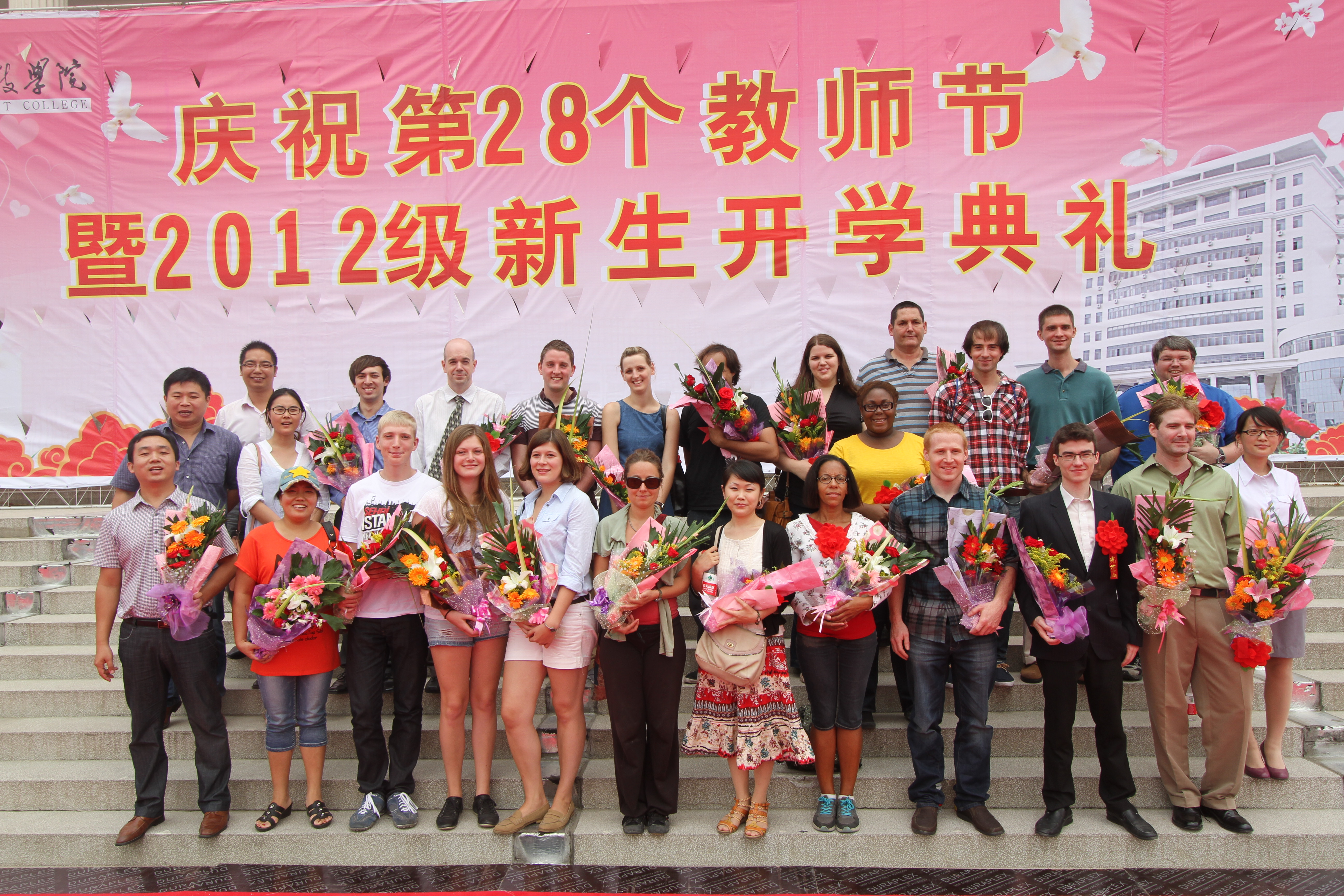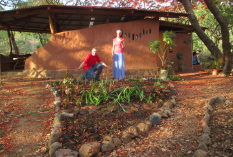Live and learn, they say. So it stands to reason that the more we live, the more we learn.
I decided to live more by seeing the world. Then when the money was mostly gone and I wasn’t ready to return home, I stayed in China and began teaching English; teaching, while living and learning more than ever before.
Certain things I learnt about myself and the world during my time in China went on to shape the way I think today, in ways that only spending time away from home ever can.
Deciding to teach in China will change your life, and that of your students. But maybe not in the ways you’d expect.
Your comfort zone is the worst place to stay
Before I began teaching, shyness would have me struggling to speak to more than a few of my friends at the same time if the number of people listening was too big. Unfortunately, when I landed a job at a school in China, my first responsibility was an introductory presentation in front of about 50 students and the other teachers.
I worried, I prepared, I worried more, I paced the room, and I delivered the presentation. It was supposed to last for about half an hour; I overran to about 45 minutes, and even then they had to stop me.
I was having a great time. I was in the zone. My newly expanded comfort zone; expanded because I’d stepped out of it and onto the stage, where it had come and caught me up and encircled me again. Only now it included doing presentations.
And that is the only way to expand your comfort zone: to leave it once in a while and force it to grow to where you are now. Every time you do something that scared you beforehand, you’re progressing. Once your comfort zone has grown, it won’t shrink back, and so it’s on you to leave it as often as possible.
Over prepare but be prepared to wing it
Lesson planning. It’s an essential part of being a good teacher, but knowing that your lessons often won’t go anything like how you imagined is even more important.
A good teacher knows to always have Plans B and C too, just in case. You should have learnt this on your TEFL course. Murphy’s Law dictates however that once you have them, you won’t need them. It’s only when you haven’t made them that you will.
In teaching or in life though, it’s sensible to have a back-up plan.
Even more important than having a back-up though is possessing the holy skill of being able to wing it. The teacher who can get through the last half hour of class with no plan while retaining complete control of the class, with no hint of panic or worry whatsoever, is the one most likely to go furthest in life.
Of all the skills I learnt in the classroom, making people believe I’m in complete control of a situation that I not necessarily am has been the most useful when transferred to real life, especially in business.
Time is not constant
That is, the idea of time, the etiquette, and what constitutes ‘a long time’.
In China, and Asia in general, time is not of the essence. Between friends, half an hour late is not late. Back home, I used to get annoyed if somebody was five minutes late for even a social meeting. Just picture that for a second (or longer).
You’re meeting your friends for a night out. The base idea is to go and have fun for three, four, five hours. Why make yourself feel bad if someone is five minutes late? What are you missing out on that you could have done in that time? What is the worst that can happen? So why would you start the night annoyed because of it?
This got me to thinking.
Look at the big picture. Look at your life. What do you want to achieve? What are your long term goals, and what is your five minutes?
So, this job that you dislike. When can you realistically quit? In under a year? Because if it’s helping you towards your life goals in the meantime, that’s nothing. It’s five minutes.
This project that you’re not enjoying. How long will it take to finish? A few weeks? Again, suck it up and look at the bigger picture. It’s five minutes, and you’ve got all night to have fun.
You know a lot more than you think but also a lot less too
When you’ve lived in the same place for most or all of your life, you probably know about as much on most general topics as most other people around you. It’s a product of the environment, the media, and of life wherever you’re from.
When you’re teaching in a foreign country, you become the relative expert on so many things you have never considered, and it reaches the point where you’re never only teaching English. You’re potentially teaching every piece of common knowledge that you and everyone you know back home take for granted, to people for whom it’s new, and special, and exciting.
I’ve spent whole classes talking about some historical event based only on what I learnt and mostly forgot at high school, or on some small story that would only have been an ‘And Finally’ on the news back home.
You’ll be surprised by how much you know and what other people don’t know, and what they want to learn about. Help them. Teach the world everything you can, even if for you it seems mundane, because for someone else it could be the greatest story ever told.
And those topics that you think you only know a little about?
Believe me, you know even less than that, and you’ll realise this as soon as you start talking with a relative expert on the other side of the world.
The good news is you’re in the best place to learn, because you’re anywhere that isn’t home. Talk to people, not Google. Get local versions and opinions. Tap into the real knowledge while it’s there. Your time away from home, teaching or otherwise, is when you can both spread and take on the most knowledge.
As the saying goes: if you want to learn, teach.
The world doesn’t make sense but it doesn’t actually matter
Somewhere, on the other side of the world, I was trying to get my students speaking with perfect grammar, yet most of them will never be anywhere near fluent in English. Back home in England, where the native speakers live, nobody I know speaks the way I was teaching my students to. We break the rules, we invent new words, and nobody really cares.
Like much of what happens in the world, it’s completely nonsensical, but it couldn’t matter less. What do matter are the human relationships we form while we’re busy doing everything else. Since I stopped teaching and left China I’ve had time to look back, and this is what I now understand.
My students enjoyed my classes, and their English noticeably improved. Then when the year was over, I wasn’t their teacher anymore.
I can’t now remember which of my students improved the most, or who had the best handwriting, or who picked up grammar the quickest. I doubt they can remember which of my lessons went better than others either. It’s all forgotten, as perhaps is much of the English I taught, but the time isn’t. The greatest detail of my time spent teaching was the forming of the human relationships with the students, and those relationships are what remain with me today.
Work is work and we need to understand that it can always be stripped away to reveal what really matters; bonds, communication, mutual respect, interaction, time shared and remembered.
That is the most important lesson I learnt from living and teaching in China, and is what should be told to anyone who is considering doing the same.











